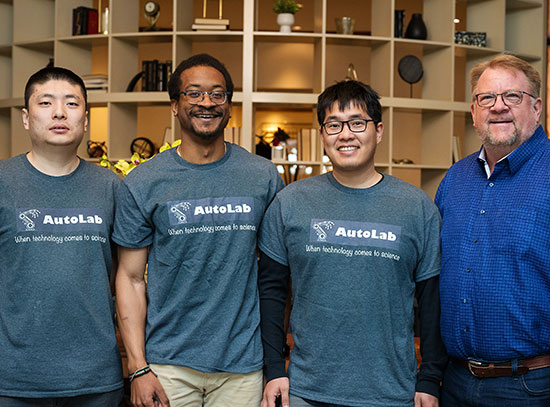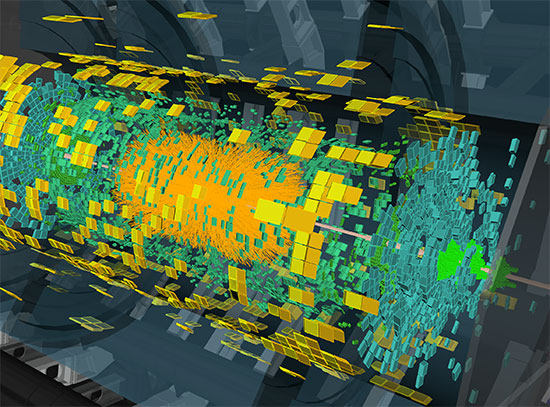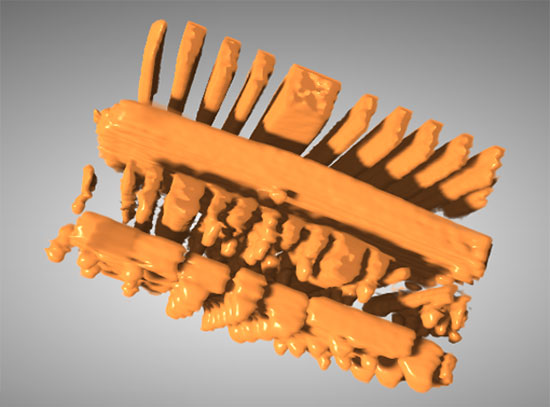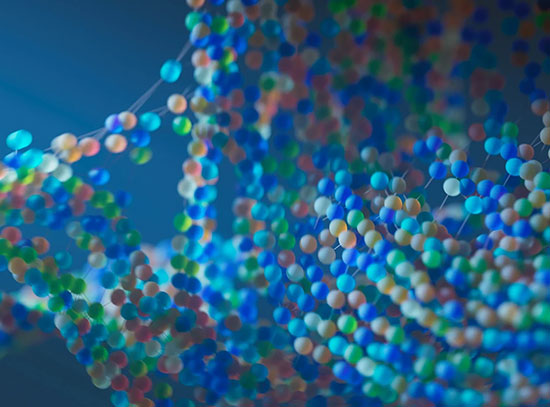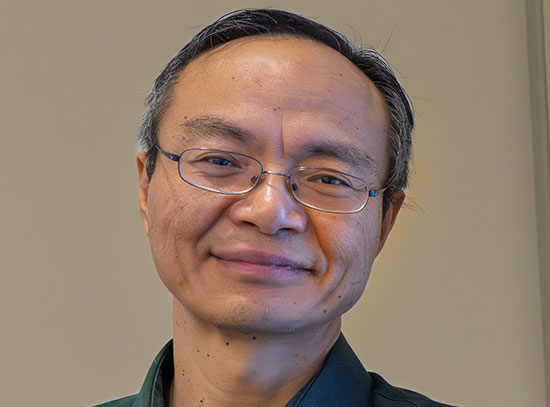MEDIA ADVISORY: Electron-Ion Collider Accelerator Collaboration Kicks Off May 21 at Premiere Physics Conference
15th International Particle Accelerator Conference (IPAC'24) will feature key talks on the world's first Electron-Ion Collider (EIC)
May 14, 2024
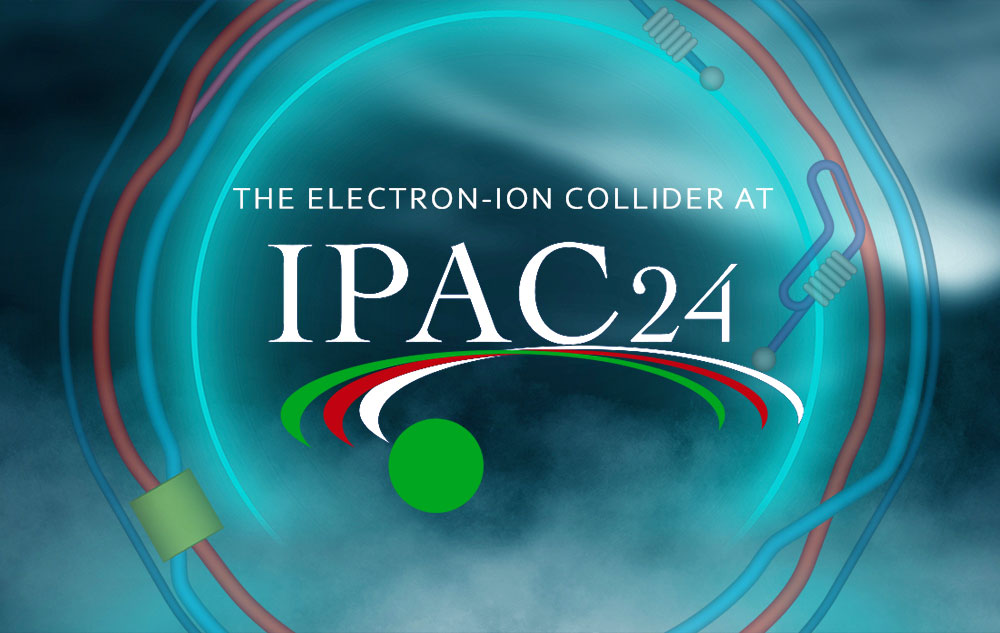
WHAT: More than 500 accelerator experts from throughout the U.S. and around the world will meet on Tuesday, May 21, 2024, in Nashville, Tennessee, to kick off a major international collaboration that will contribute to the design and construction of the world’s first Electron-Ion Collider (EIC). The EIC Accelerator Collaboration will enhance the long-term evolution and performance of the EIC, which will be built at the U.S. Department of Energy’s (DOE) Brookhaven National Laboratory in partnership with DOE’s Thomas Jefferson National Accelerator Facility and other U.S. and international collaborators. The collaboration provides an exciting opportunity to train and develop a diverse workforce for the only accelerator that is planned to be built in the near future and engage the international community to be a part of solving the scientific and technical challenges ahead. The kickoff is planned to coincide with the 15th International Particle Accelerator Conference (IPAC’24), and participants of IPAC’24 are invited to attend. EIC project leaders will give updates about the EIC during the satellite kickoff event, and several EIC talks will be featured during the conference. Collaborators, industry partners, and potential collaborators will learn how this project will benefit not only EIC participants but also the wider community of accelerator experts.
WHEN:
IPAC’24 — May 19-24, 2024
EIC Accelerator Collaboration Satellite Event at IPAC’24 — Tuesday, May 21, 2024, 6-8:30 p.m. CDT*
WHERE: Music City Center, Nashville, Tennessee
BACKGROUND: The EIC will have unique capabilities, including the ability to accelerate and collide beams of polarized (spin-aligned) electrons with other polarized particles — protons and lightweight ions — as well as heavier atomic nuclei. Like a CT scanner for atoms, the EIC will offer unprecedented insight into the secrets of the building blocks of visible matter and the strongest force in nature. The EIC will provide compelling discoveries using AI-driven efficiencies to improve accelerator technologies and will yield potential applications in modern industry and medicine.
DETAILS:
EIC Accelerator Collaboration Satellite Event at IPAC’24
Tuesday, May 21, 2024, 6-8:30 p.m. CDT
Level 1M, Davidson Ballroom, Music City Center
6-6:05 p.m. Welcome Address: JoAnne Hewett, Director, Brookhaven National Laboratory
6:05-6:30 p.m. Electron-Ion Collider Status: Sergei Nagaitsev, EIC Technical Director, Brookhaven National Laboratory
6:30-6:55 p.m. EIC Accelerator Collaboration Update: Carsten Welch, University of Liverpool/Cockroft Institute, UK
6:55-7:10 p.m. Open Microphone Session
7:10-8:30 p.m. Networking Reception
IPAC’24 EIC Talks
From RHIC to EIC Hadron Storage Ring: Overview of the Engineering Challenges
Frederic Micolon, Brookhaven National Laboratory
May 21, 2024, 11:30-11:50 a.m.
Davidson Ballroom, Music City Center
The Electron-Ion Collider (EIC) hadron storage ring will reuse most of the existing hardware from the Relativistic Heavy Ion Collider (RHIC) rings. However, extensive modifications will have to be performed in preparation for the new accelerator parameters and performance required by the EIC. This talk will give an overview of the engineering modifications required to turn RHIC into the EIC hadron storage ring.
Americas Regional Accelerator Projects
Luisella Lari, EIC Project Manager, Brookhaven National Laboratory
Tuesday, May 21, 4-4:10 p.m. CDT
Davidson Ballroom, Music City Center
Lari will give a talk for the keynote industry session on “Engagement with Industry, Knowledge Exchange, and Industrial Relations.” Lari is the project manager for the Electron-Ion Collider (EIC) project and a senior scientist at Brookhaven National Laboratory. Lari oversees day-to-day management of the design and construction of the EIC facility.
Coherent Electron Cooling Physics for the EIC
William Bergan, Brookhaven National Laboratory
May 23, 2024, 11-11:30 a.m. CDT
Davidson Ballroom, Music City Center
To prevent emittance growth, or spread of particles in a beam, during long stores of the proton beam at the future Electron-Ion Collider, physicists need a mechanism to provide fast cooling of the dense proton beams. One promising method is coherent electron cooling, which uses an electron beam to both "measure" the positions of protons within the bunch and then apply energy kicks to reduce the protons’ longitudinal and transverse spreading. This talk will discuss the underlying physics of this process. It will also cover simulations that constrain the electrons to move only longitudinally to perform fast optimizations and long-term tracking of the bunch evolution and benchmark these results against fully 3D codes. Finally, it will address the practical challenges, including the necessity of a high-quality electron beam and sub-micron alignment of the electrons and protons.
Other Topics
Other Brookhaven Lab scientists will be giving talks and presenting posters to highlight research capabilities at Brookhaven Lab’s Alternating Gradient Synchrotron, NASA Space Radiation Laboratory, and the Relativistic Heavy Ion Collider (RHIC).
Press Registration Information From IPAC’24
The EIC Accelerator Collaboration Satellite Event is open to press as well as registered conference attendees. Registration is required to attend other IPAC’24 sessions or the exhibition. Visit IPAC’24 registration.
*All times listed are in Central Daylight Time, the time zone for the meeting’s Tennessee location. IPAC’24 is an in-person event.
The EIC project is funded by the DOE Office of Science. RHIC is a DOE Office of Science user facility, as will be the EIC when it opens for operations sometime in the 2030s.
###
Brookhaven National Laboratory is supported by the Office of Science of the U.S. Department of Energy. The Office of Science is the single largest supporter of basic research in the physical sciences in the United States and is working to address some of the most pressing challenges of our time. For more information, visit science.energy.gov.
Follow @BrookhavenLab on social media. Find us on Instagram, LinkedIn, X, and Facebook.
2024-21877 | INT/EXT | Newsroom




